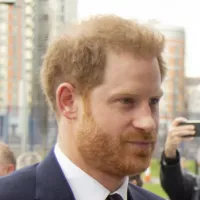The Patriot League is an NCAA Division I collegiate athletic conference made up of highly selective private institutions and two US service academies in the Northeastern US. It boasts a high student-athlete graduation rate, second only to the Ivy League in academic standards among NCAA Division I schools.
1947: Holy Cross Wins National Championship
Holy Cross, featuring future Hall of Famer Bob Cousy, achieved a historic victory by winning the 1947 national championship.
1959: BU's Impressive NCAA Tournament Run
BU showcased a strong performance in the 1959 NCAA Tournament, securing two victories before their run ended in the regional finals.
1980: Ivy League Expansion Prompts Formation of New Conference
In 1980, the Ivy League's decision to expand football schedules to ten games led to the need for a new conference. This resulted in the creation of the Colonial League, a football-only conference, in 1986.
1986: Navy Reaches Regional Finals
Representing the Colonial Athletic Association, a Navy team led by future Hall of Famer David Robinson advanced to the regional finals of the NCAA Tournament in 1986.
1986: The Colonial League is Formed
The Colonial League, a football-only conference, was formed in 1986 with six founding members: Holy Cross, Lehigh, Bucknell, Colgate, Lafayette, and Davidson.
1988: Davidson Leaves the Colonial League
Davidson departed from the Colonial League in 1988 due to geographical challenges, lack of competitiveness, and concerns about basketball scholarships.
1990: The Colonial League Becomes the Patriot League
The Colonial League was renamed the Patriot League in 1990, marking the beginning of its transition into an all-sport conference.
1991: Expansion into All-Sport Conference and New Members
In 1991, the Patriot League expanded into an all-sport conference, welcoming Fordham and the United States Military Academy (Army) as new members. Later that year, the United States Naval Academy (Navy) also joined.
1993: Connie Hurlbut Becomes Executive Director
The Patriot League appointed Constance (Connie) H. Hurlbut as executive director in 1993, making her the first woman and youngest person to lead an NCAA Division I conference.
1995: Fordham Resigns Full Membership
Fordham withdrew its full membership from the Patriot League in 1995 but maintained associate membership in football.
1996: Fairfield and Ursinus Join as Associate Members
Fairfield and Ursinus joined the Patriot League as associate members in field hockey in 1996.
1997: Colgate Receives First Patriot League Automatic Playoff Berth
In 1997, Colgate became the first Patriot League team to secure the league's automatic berth for the NCAA Division I Football Championship playoffs.
1997: Patriot League Adopts NCAA Division I Football Championship Playoff Participation
In 1997, the Patriot League, aligning with its commitment to competitive excellence, decided to allow its teams to participate in the NCAA Division I Football Championship playoffs. This decision marked a departure from the league's previous policy, which was in line with the Ivy League's approach of not participating in playoffs.
1997: Towson Joins as Associate Member
Towson became an associate member in football in 1997.
1998: Introduction of Basketball Scholarships
The Patriot League allowed athletic scholarships for basketball, starting with freshmen entering in the fall of 1998.
1999: Feinstein Chronicles Patriot League Men's Basketball Season
During the 1999-2000 season, John Feinstein chronicled the experiences of all seven Patriot League men's basketball teams for his book "The Last Amateurs."
1999: Hobart and Villanova Join as Associate Members
Hobart joined the Patriot League as an associate member in men's lacrosse, and Villanova joined as an associate member in women's lacrosse in 1999.
2000: John Feinstein Publishes "The Last Amateurs"
In 2000, John Feinstein published "The Last Amateurs," a book profiling the Patriot League and its unique position in Division I basketball. The book highlighted the league's commitment to student-athletes and its status as one of the last to hold a conference tournament.
2001: American University and Georgetown Join
In 2001, American University was welcomed as the eighth full member of the Patriot League, and Georgetown University joined as an associate member in football.
2001: Expansion of Athletic Scholarships to Sports Other Than Football
With the admission of American University, which offered scholarships in all sports except football, the Patriot League started permitting all member schools to provide scholarships in sports other than football.
2003: Fairfield and Towson Depart
Fairfield left the Patriot League after the 2003 fall season to join the Northeast Conference as an associate member, while Towson departed to join the Atlantic 10 Conference, whose football conference was later absorbed by the Colonial Athletic Association in 2007.
2004: Hobart Departs for ECAC Lacrosse League
Hobart left the Patriot League after the 2004 spring season to become a member of the ECAC Lacrosse League.
2004: Patriot League Introduces Conference Tournament for Men's Lacrosse
Prior to the 2004 season, the Patriot League did not hold a conference tournament to determine a single winner for men's lacrosse.
2005: Bucknell Achieves NCAA Tournament Victory
Bucknell secured an NCAA Tournament victory against Kansas in 2005.
2006: Bucknell Wins Against Arkansas in NCAA Tournament
Bucknell continued its NCAA Tournament success in 2006 with a win over Arkansas.
2006: Lafayette Adopts Athletic Scholarships
Lafayette, the final holdout against athletic scholarships, began offering full rides in basketball and other sports to freshmen entering in the fall of 2006.
2006: Villanova Departs
Villanova's time as an associate member in the Patriot League concluded in the spring of 2006.
2007: Towson's Football Conference Absorbed by CAA
Towson's football conference was absorbed by the Colonial Athletic Association in 2007.
2009: Fordham University to Offer Football Scholarships
Fordham University announced in the spring of 2009 its decision to offer football scholarships starting in the fall of 2010.
2010: Bryan Cohen Named Patriot League Defensive Player of the Year
Bucknell's Bryan Cohen was honored as the Patriot League Defensive Player of the Year in 2010.
2010: Fordham Implements Football Scholarships
Fordham's implementation of football scholarships began in the fall of 2010.
2011: Bryan Cohen Earns Second Consecutive Defensive Player of the Year Award
Bryan Cohen's exceptional defensive skills earned him his second consecutive Patriot League Defensive Player of the Year award in 2011.
February 13, 2012: Patriot League Approves Football Scholarships
The Patriot League announced on February 13, 2012, that its members could start offering football scholarships beginning with the 2013–14 academic year.
2012: Bryan Cohen Makes History with Third Defensive Player of the Year Award
In 2012, Bryan Cohen became the first player in Patriot League history to receive the Defensive Player of the Year award three times.
2012: Boston University and Loyola University Maryland Announce Future Membership
In the summer of 2012, Boston University and Loyola University Maryland announced their intention to join the Patriot League, with Boston University's announcement on June 15 and Loyola University Maryland's on August 29.
2012: Lehigh Defeats Duke in NCAA Tournament
Lehigh achieved a notable victory against Duke in the first round of the 2012 NCAA Tournament.
2013: Boston University and Loyola University Maryland Join
Boston University and Loyola University Maryland officially joined the Patriot League for the 2013–14 academic year.
2013: Bucknell Expands Athletic Scholarships
Bucknell, which previously only granted athletic scholarships in basketball, began offering them in football as well, starting in 2013.
2013: Fordham Joins Colgate in Achieving Playoff Invitation Without Co-Championship
In 2013, Fordham joined Colgate as the second Patriot League team to receive a playoff invitation to the NCAA Division I Football Championship playoffs without being a league co-champion.
2013: Implementation of Football Scholarships Begins
The Patriot League began allowing its members to offer football scholarships to incoming players, with a maximum equivalent of 15 scholarships per season, beginning in the 2013 recruiting class.
2013: Football Scholarship Implementation Begins
The Patriot League's decision to allow athletic scholarships for football came into effect with the 2013 recruiting class, permitting each school to offer a maximum equivalent of 15 scholarships per season.
2015: Fordham Achieves Second Playoff Invitation Without Co-Championship
Fordham, in 2015, achieved its second playoff invitation to the NCAA Division I Football Championship playoffs without holding a league co-champion title.
2016: Completion of Scholarship Football Transition
By 2016, the transition to scholarship football in the Patriot League was complete, with each participating school allowed a maximum of 60 scholarship equivalents per season.
2016: Holy Cross Ends 63-Year Drought
Holy Cross ended a 63-year drought in the NCAA Tournament by defeating Southern University in 2016.
2016: Ivy League Adopts Conference Tournament
In the 2016-2017 season, the Ivy League, known for its academic rigor and athletic philosophy, held its first-ever conference tournament.
2016: Transition to Scholarship Football Complete
With the completion of the transition to scholarship football in 2016, each football-playing member of the Patriot League was permitted a maximum of 60 scholarship equivalents per season.
2020: Patriot League Introduces North-South Divisional Format
In 2020, due to the COVID-19 pandemic, Georgetown opted out of the NCAA Division I FCS football season, prompting the Patriot League to adopt a temporary north-south divisional format. This change led to the first-ever Patriot League Football Championship Game.
2022: Fordham Makes History with Third Playoff Invitation Without Co-Championship
In 2022, Fordham secured its third playoff invitation to the NCAA Division I Football Championship playoffs without being a league co-champion, solidifying its position as a strong contender in the league.
2023: Army Black Knights Men's Lacrosse Team Holds Record for Conference Championships
As of 2023, the Army Black Knights men's lacrosse team boasts thirteen conference championships, the highest number among all schools in the Patriot League.
May 2024: University of Richmond Announces Football Program Move
In May 2024, the University of Richmond, already an associate member for women's golf, decided to move their football program to the Patriot League, starting in the 2025 season, making them the first new football-playing member in over two decades.
2025: University of Richmond's Football Program Joins Patriot League
In 2025, the University of Richmond's football program will officially join the Patriot League.
2025: University of Richmond Joins as Associate Member in Football
In 2025, the University of Richmond, already an associate member for women's golf, will become an associate member in football for the Patriot League.
Mentioned in this timeline

Basketball is a team sport played on a rectangular court...

Football is a family of team sports primarily involving kicking...

Books are a means of storing information as text or...

Sport is a structured physical activity or game often competitive...
Kansas is a Midwestern U S state bordered by Nebraska...

Boston the capital and most populous city of Massachusetts is...
Trending

11 minutes ago Baiul, Kerrigan, and Chen Revisit Historic 1994 Olympics Photo: A Nostalgic Reunion
11 minutes ago Omaha Braces for Winter Storm: Schools and Businesses Alter Schedules

11 minutes ago Prince Harry Uses Intermediary to Contact Prince William; Relations Remain Strained
12 minutes ago Mason Thames' New Comedy with Peter Dinklage Receives Positive Reviews; Dominates Netflix.

12 minutes ago Sarah Ferguson faces company dissolutions following Epstein scandal; six businesses to close.

1 hour ago Clara Tauson Dominates Linette in Dubai, Secures WTA 1000 Quarterfinal Spot
Popular

Jesse Jackson is an American civil rights activist politician and...
Randall Adam Fine is an American politician a Republican who...

Pam Bondi is an American attorney lobbyist and politician currently...

Barack Obama the th U S President - was the...

Martin Luther King Jr was a pivotal leader in the...

Ken Paxton is an American politician and lawyer serving as...